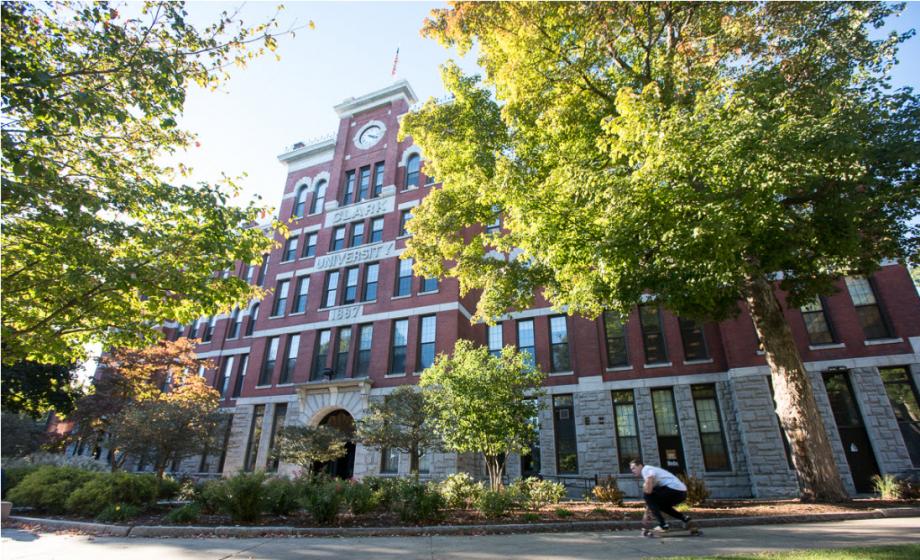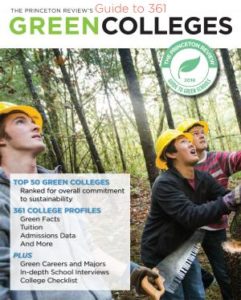
Clark University is one of the 361 most environmentally responsible colleges according to The Princeton Review. The university is included in the education services company’s free book, The Princeton Review’s “Guide to 361 Green Colleges.”
Download the Princeton Review Guide to Green Colleges here.
The Princeton Review chose the schools for this seventh annual edition of its “green guide” based on data from the company’s 2015-16 survey of hundreds of four-year colleges concerning the schools’ commitments to the environment and sustainability. Clark received a green rating score of 90.

Green Colleges is available for
download now.
“We are delighted that Clark is again one of Princeton Review’s Green Colleges, for the seventh consecutive year — in fact, since they began publication,” says Jenny Isler, director of sustainability at Clark. “That is a testament not only to how ‘green’ Clark is, but to the University’s long-standing commitment to address the complex issues of economic, social and environmental sustainability. It clearly shows how hard our students, faculty and administration work to keep Clark ahead of the curve, leading the way in effective sustainability initiatives, programs, curricula and research.”
In its profile of Clark University, the guide highlights Clark’s “bold” Climate Action Plan, which sets a goal of zero emissions by 2030. Also noted are green campus features that started with student initiatives, such as the co-generation plant (which provides heat and power to 70 percent of campus); the student Recycling Crew and its 50 percent waste diversion rate; the composting program, which composts 100 percent of food and paper waste in the Higgins Café; and the campus’ Electric Vehicle charging stations, which were the first in central Massachusetts. Visit Sustainable Clark for more information on Clark’s sustainability efforts.
Clark’s newest facility, the Alumni and Student Engagement Center, was completed this past summer and boasts a full roof solar array that will provide up to 50 percent of the building’s energy needs, a landmark for the city of Worcester and for the University. Additional solar panels may be added to the parking lot in the future to bring the building to net zero energy. In addition, the building is oriented to allow for maximum “daylight harvesting” to reduce overhead illumination and offset winter heating usage. LEED Gold level certification is expected for the ASEC by the end of the year.
The profiles in The Princeton Review’s “Guide to 361 Green Colleges” provide information about each school’s admission requirements, cost and financial aid, and student body stats. They also include “Green Facts” about the schools with details on the availability of transportation alternatives at the schools and the percentage of the school food budgets spent on local/organic food.
